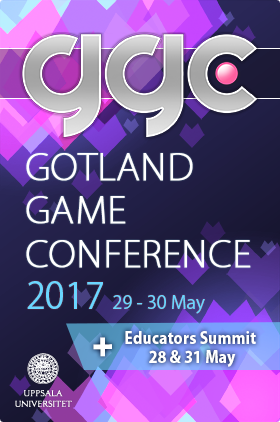Click through for the live tweet coverage
We're now on with Bonnie Ruberg. She's a queer intersectional feminist presenting… #ggconf17
— Gotland GAME (@GotlandGAME) May 30, 2017
About the talk:
Over the past few years, “empathy” has become a buzzword in game design and game scholarship: the new gold standard for supposedly immersive, impactful, and socially meaningful video games. This is nowhere more true than in games that address the perspectives of marginalized people. Many contemporary queer indie games, for instance, have been labelled “empathy games,” because they seem to give straight players the chance to experience what it feels like to be LGBTQ. However, a number of these game queer indie game-makers, such as Robert Yang, Mattie Brice, merrit kopas, and Anna Anthropy, have spoken out against “empathy,” which can actually describe the straight appropriation of queer lives. As Yang wrote in a recent blog post, “If you walk in someone else’s shoes, then you’ve taken their shoes.”
This talk interrogates the notion of empathy in video games and calls on designers and scholars alike to look for new models of what we feel when we play — especially when it comes to queer games. It draws from Donna Harraway’s concept of “being with” to explain how video games can allow us to exist alongside other perspectives without appropriating them. In this way, the talk argues for a model of feeling in video games that truly promotes social justice, instead of giving problematic lip service to the importance of “diversity.”
About Bonnie Ruberg:
Bonnie “Beaux” Ruberg is a provost’s postdoctoral scholar in the Interactive Media & Games Division at the University of Southern California and an assistant professor of Informatics at the University of California, Irvine. They received their Ph.D. from the University of California, Berkeley with emphases in New Media and Gender and Sexuality Studies. Their research focuses on sexuality in digital media, with a specialization in queer issues in/and video games. They are the co-editor of the volume Queer Game Studies (2017, University of Minnesota Press) and the lead organizer of the annual Queerness and Games Conference. Previously, they have also worked as a technology and games journalist for publications like The Village Voice and The Economist.
